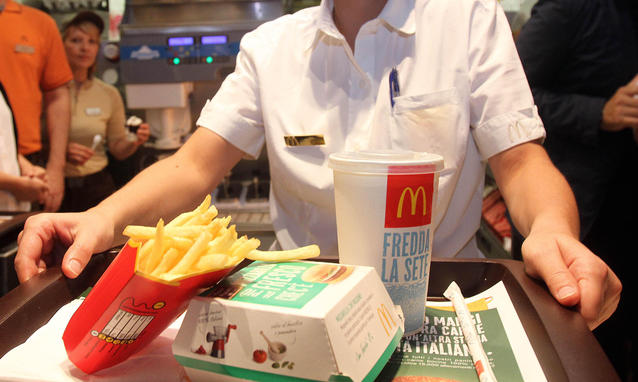Analysis
Government helps McDonald’s, Zara exploit high schoolers for free labor
"No training, only clothes to fold." A new work-study initiative by the Italian government is gifting thousands of hours of free labor to large corporations, who seem to be missing the point.

It’s the most bitter aspect of the Good School, an education reform plan in Italy. And it is literally driving a million and a half students and their families crazy. This school year — the first full-time year for those who attended the last three years of high school — they will have to find an “external internship” for those months they will spend out of school: 200 hours for high schools, 400 hours for all other institutes.
The Education Ministry is proud of this school-work scheme: “The extension of alternation activities to high schools is also a European unicum,” its website says. “Even in Germany, with the dual system, work-school experience only applies to technical and professional institutes. Our model exceeds the division between knowledge-based learning paths and others that favor practical experience. Knowledge, practical skills and expertise must go together.”
Too bad the “Italian model” has been reduced to a complete subordination to corporations — defined with the euphemism “hosting environment” — which, in large numbers, take advantage of the labor-market alternation simply to have free workers and save millions in labor costs.
The numbers are astounding. There are 131,000 companies involved — 200,000 if we add together the sports and voluntary associations, cultural institutions, and vocational colleges — funded with €100 million a year plus another €140 million allocated under the National School Operational Program. All this, with the aim of “promoting the development of the sense of initiative and entrepreneurship,” as the ministry’s website states.
The evidence is in the texts of the agreements signed with the companies. It’s all transparent on the ministry’s website. It was no coincidence that larger business associations were the first to sign “protocols of understanding” with the Ministry of Education. Federmeccanica was the first — back in 2014 — followed by Confindustria shortly afterwards, then by Federalberghi on March 7, 2016. Among the largest companies, the fastest was Enel (June 9, 2016), followed by McDonald’s (July 29, 2016).
The most prominent example of using this alternative as a strategy for cutting labor costs is very recent. This is the one signed by Fico, the Disneyland of food, agriculture and food-chain supply, which will open in Bologna on March 15, thanks to the alliance between Eataly’s Farinetti and the former Emilian red cooperatives.
Here the project even has a specific name: “One day at Fico.” Randstad, a major temporary work agencies, serves as intermediary, raking in over 300,000 hours of work-school alternation for about 20,000 students from 200 schools scattered across the country. Randstad is trying to cash in on an additional exploitation: All participating schools may also apply for a two-week internship at Randstad subsidiaries.
It’s all planned out to get free labor: “The collaboration with Randstad is very important to us,” says Tiziana Primori, CEO of Fico Eataly World, “It creates the opportunity to involve young people and students in work-oriented pathways.”
As far as exploitation is concerned, McDonald’s, Zara and Autogrill are leading the pack. In regards to the fast food giant, one needed not to be a genius to understand how it would end: Out of the 530 restaurants in Italy, over 70 percent are independently owned franchises and are unable to ensure the teaching promised in the protocol: “formative theoretical modules on the business model,” “hygiene and food safety standards,” etc. As the student associations point out, the curriculum will essentially be “handing them a brush to clean the bathrooms” or “a spatula to flip the burgers.”
But that’s all fine, says the ministry-corporations “joint committee,” whose job is to “monitor the implementation of the interventions and propose the appropriate adjustment.” Fortunately, even the joint committee does not cost anything: “Participation is free of charge,” the protocol specifies.
Meanwhile, the Spanish clothing giant Zara’s program is lean and international. It looks like an English lesson: It has a hashtag (#zarahighschool) and aims to make the company “the alternation champions of the Good School.” The program foresees acquiring expertise in “using support technologies such as radio frequency identification (RFID), e-commerce and visual merchandising.”
It’s a pity that the 576 students who completed it last year — an identical number is expected for this and the next school year — describe a different kind of experience: “No training, only clothes to fold.” And some meal tickets to eat lunch.
Originally published at https://ilmanifesto.it/fico-mcdonalds-zara-e-altre-100mila-quando-la-forza-lavoro-e-gratuita/ on 2017-10-14
